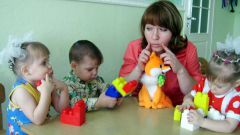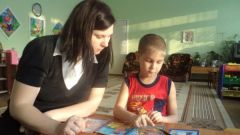Instruction
1
Consult with teachers of special schools, the school psychologist. It is best to think about the guidance in advance, in the 7-8 class. Find out whether your child to learn their chosen specialty. Keep in mind that it matters not only the level of intelligence of the child, but his stress tolerance, ability to withstand the academic and future professional obligations, along with healthy people. Also you can appeal to an independent psychologist. The right choice of a professional career is up to you and your child, but it is best to go in advance on a suitable and professional way.
2
Together in a child decide where he should finish high school. There are at least 4 options - vocational school - College, high school in a correctional school, evening school or home schooling. Study in technical schools will give your child the opportunity to learn a profession. Besides, this is the right decision for the children of the remedial schools VIII, that is, with mental retardation given the fact that these schools reduced educational program, the children at the end of training do not receive a certificate of General sample and can't pass the exam and to enroll in universities. In some cases, these children are chosen ad hoc group in schools, staffed by experienced teachers who know the peculiarities of such children. Evening school may be a way out for children from schools VIII with a weak degree of mental retardation. In this case, they after the end of the evening schools will be able to obtain the usual certificate, which will expand their professional horizons.
3
If your child has chosen to study at University, find a University fit for his needs. More and more Russian universities are included in inclusive education program and establish on-site ramps for disabled and adapted elevators. Visually impaired and blind students can apply to the social departments of universities to prepare them for individual program exams. Also, some universities open special training centres for persons with disabilities. For example, there are training programs for the deaf, designed for people with a developed intellect, but with regard to their communication problems.













